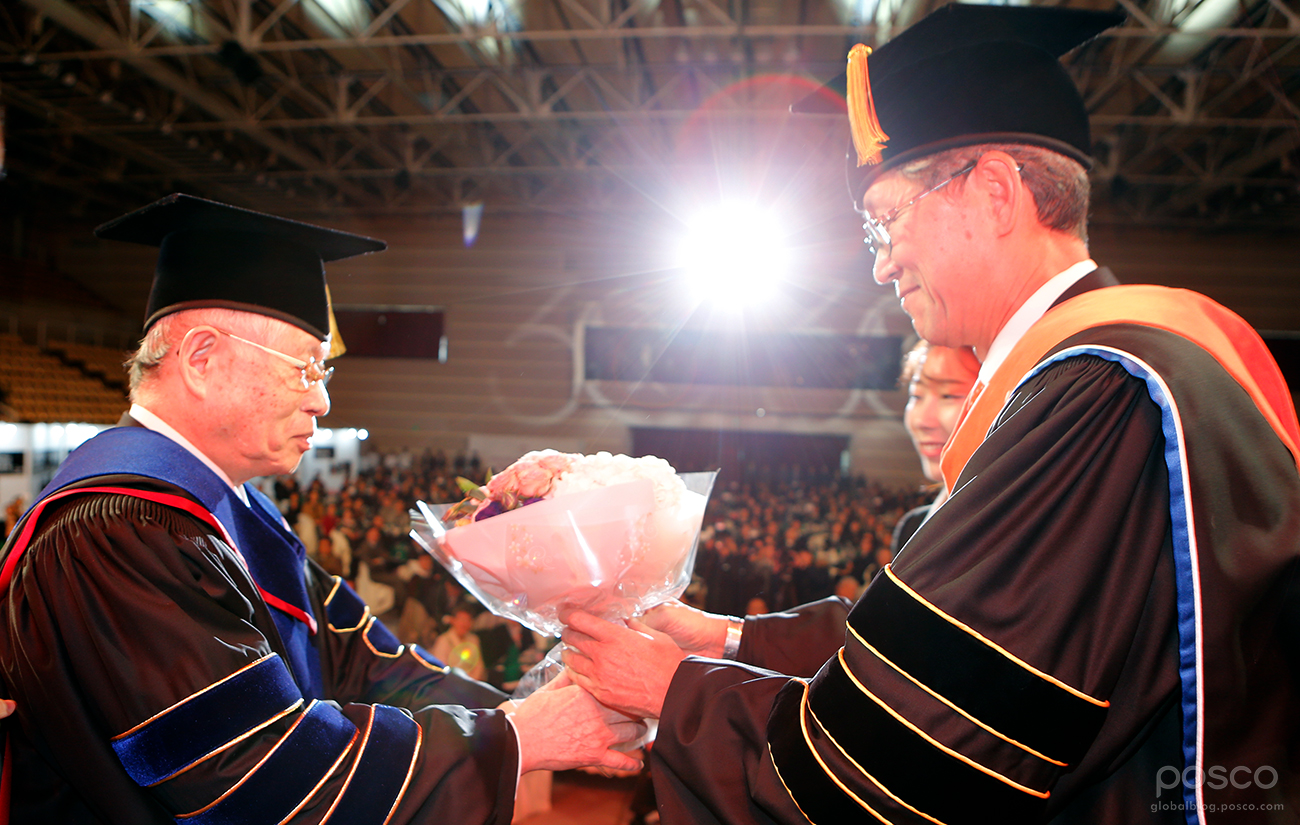
On December 2, POSTECH held a ceremony to celebrate its 30th anniversary, and rededicated the school to becoming even better.
POSCO established POSTECH (Pohang University of Science and Technology) in 1986 as Korea’s first research-oriented university, resolving to create a world-renowned science and engineering university that could lead Korea into the 21st century.
Since then, POSTECH has received much global attention, even topping a list of Asia’s leading science and technology universities, as selected by Asiaweek magazine in 1998. It was also ranked No. 28 in the World University Rankings by The Times of England in 2010, which was a first for a Korean university. In addition, POSTECH impressively secured the top place in the World University Rankings among universities under 50 years old for three years in a row, beginning 2012.
Given the dominance of Seoul for many aspects of life in Korea — most of the country’s top universities are there — POSTECH’s ability to achieve such excellence from its provincial location in the south has been all the more notable. But thanks to great support from POSCO, the university has been able to develop advanced training and research facilities, along with an excellent roster of researchers and students.
POSTECH was established by POSCO founder Taejoon Park, based on his philosophy of fostering patriotism through education, along with active support from POSCO. Since the first graduating class in 1991, POSTECH has produced 17,627 graduates. Moreover, POSTECH’s research influence was ranked at No. 6 in the world in 2015 (based on citations per faculty at the QS World University Rankings), and the school is widely acknowledged to be Korea’s leading research-oriented university.
On December 2, POSTECH held a celebration of its 30th anniversary in the POSTECH Auditorium. Among the many VIPs and leaders on hand to enjoy the occasion were POSCO CEO Ohjoon Kwon, POSTECH President Dohyeon Kim, Pohang Mayor Kangduk Lee, the wife of POSCO’s late founder Okja Jang, and former CEO Myungsik Chung.
Despite its many accomplishments, POSTECH remains dedicated to becoming even better over the next 30 years. POSTECH’s leadership says they want the university to become a school that creates value and contributes to the development of the regional and national economy, as well as to society, based on offering a solid undergraduate education, outstanding research achievements, and the active creation of businesses and jobs. With its focus on the future, the next 30 years look even brighter.
Be sure you never miss any of the exciting steel stories from The Steel Wire by subscribing to our blog.
